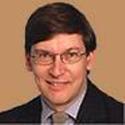
Biography:
Qualifications and position:
o MA, PhD, PGCE, MBA, FIBiol, FRSA
o Assistant Director of Research, Consultancy and Knowledge Transfer
o Professor of Science Education
Faculty:
o Faculty of Culture and Pedagogy
Department:
Department of Geography, Enterprise, Mathematics and Science
Summary:
My research, teaching and consultancy are in science education, bioethics and sex education. After a PhD and post-doctoral work in animal behaviour and evolutionary biology at the University of Cambridge, I trained to be a teacher and taught in schools before starting an academic career in education.
Research Projects:
Understanding Participation rates in post-16 Mathematics and Physics Project (funded by ESRC)
Evaluation of 'Stimulating Physics' project (funded by Institute of Physics)
Improving Practical Work in Science programme (funded by DCSF)
Postgraduate Research:
My main research interest is in understanding how science is learnt and improving the way it is taught in schools and elsewhere. I also have research interests in school sex education and in bioethics.
Abstract:
Should Science Teachers Deal with the Relationship between Science and Religion and If So How?
In my presentation I will begin by examining the nature of science and the nature of religion before looking at the ways in which science and religion relate to one another. I will then look at a number of case studies that centre on the relationships between science and religion, including creationism and attempts to find mechanisms for divine action in quantum theory and chaos theory. I conclude that there are increasing arguments in favour of science teachers teaching about the science/religion issue. The principal reason for this is to help students better to learn science. However, such teaching makes considerable demands on science teachers. With regard to creationism, my central argument is that it is best seen not as a misconception but as a worldview. The most that a science teacher can normally aspire to is to ensure that students with creationist beliefs understand the scientific position. In the short term, the scientific perspective is unlikely to supplant a creationist one. Teachers of science can help students to find their science lessons interesting and intellectually challenging without such lessons being threatening. Effective teaching in this area can not only help students learn about the theory of evolution but better to appreciate the way science is done, the limitations of science and the ways in which scientific knowledge differs from other forms of knowledge.